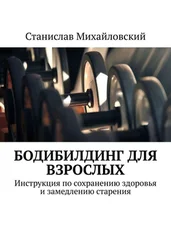13. Fancourt D., Steptoe A . The art of life and death: 14 year follow-up analyses of associations between arts engagement and mortality in the English Longitudinal Study of Ageing. BMJ 2019;367: l6377. doi: 10.1136/bmj.l6377.
14. Fancourt D., Finn S. What is the evidence on the role of the arts in improving health and well-being? A scoping review (2019). Health Evidence Network synthesis report 67 / World Health Organization. https://www.euro.who.int/en/data-and-evidence/evidence-informed-policy-making/publications/2019/what-is-the-evidence-on-the-role-of-the-arts-in-improving-health-and-well-being-a-scoping-review-2019.
15. Gaser C., Schlaug G. Brain structures differ between musicians and non-musicians. J Neurosci. 2003 Oct 8;23(27):9240–5. doi: 10.1523/JNEUROSCI.23–27–09240.2003. Erratum in: J Neurosci. 2013 Sep 4;33(36):14629. PMID: 14534258; PMCID: PMC6740845.
16. Hyde K. L., Lerch J., Norton A., Forgeard M., Winner E., Evans A. C., Schlaug G. The effects of musical training on structural brain development: a longitudinal study. Ann N Y Acad Sci. 2009 Jul;1169: 82–6. doi: 10.1111/j.1749–6632.2009.04852.x. PMID: 19673777.
17. Hanna-Pladdy B., MacKay A. The relation between instrumental musical activity and cognitive aging. Neuropsychology. 2011 May;25(3):378–86. doi: 10.1037/a0021895. PMID: 21463047; PMCID: PMC4354683.
18. Cole D. Your Aging Brain Will Be in Better Shape If You’ve Taken Music Lessons / National Geographic. https://www.nationalgeographic.com/news/2014/1/140103-music-lessons-brain-aging-cognitive-neuroscience/.
19. Batt-Rawden K., Andersen S. «Singing has empowered, enchanted and enthralled me»-choirs for wellbeing? Health Promot Int. 2020 Feb 1;35(1):140–150. doi: 10.1093/heapro/day122. PMID: 30715392.
20. Chan C. G. H., Yow W. Q., Oei A. Active Bilingualism in Aging: Balanced Bilingualism Usage and Less Frequent Language Switching Relate to Better Conflict Monitoring and Goal Maintenance Ability. The Journals of Gerontology: Series B, gbaa058. doi: 10.1093/geronb/gbaa058.
21. Hack E. E., Dubin J. A., Fernandes M. A., Costa S. M., Tyas S. L. Multilingualism and Dementia Risk: Longitudinal Analysis of the Nun Study. J Alzheimers Dis. 2019;71(1):201–212. doi: 10.3233/JAD-181302. PMID: 31322560.
22. Radiological Society of North America. Reading, writing and playing games may help aging brains stay healthy. ScienceDaily, 25 November 2012. https://www.sciencedaily.com/releases/2012/11/121125103947.htm.
23. Bavishi A., Slade M. D., Levy B. R. A chapter a day: Association of book reading with longevity. Soc Sci Med. 2016 Sep;164:44–48. doi: 10.1016/j.socscimed.2016.07.014. Epub 2016 Jul 18. PMID: 27471129; PMCID: PMC5105607.
24. Harvard Health Publishing. Harvard Medical School. «Train your brain». Harvard Men’s Health Watch. March, 2018. https://www.health.harvard.edu/mind-and-mood/train-your-brain.
25. Park D. C., Lodi-Smith J., Drew L., et al. The impact of sustained engagement on cognitive function in older adults: the Synapse Project. Psychol Sci. 2014;25(1):103–112. doi: 10.1177/0956797613499592.
26. Lee S., Charles S. T., Almeida D. M. Change Is Good for the Brain: Activity Diversity and Cognitive Functioning Across Adulthood. The Journals of Gerontology: Series B, gbaa020, doi: 10.1093/geronb/gbaa020.
Часть III. Телесное здоровье
Глава 1. Питание: из чего мы строим наше тело
1. Всемирная организация здравоохранения. Ожирение и избыточный вес. 01.04.2020. https://www.who.int/ru/news-room/fact-sheets/detail/obesity-and-overweight.
2. Schnurr T. M., Jakupović H., Carrasquilla G. D. et al. Obesity, unfavourable lifestyle and genetic risk of type 2 diabetes: a case-cohort study. Diabetologia 63, 1324–1332 (2020). doi: 10.1007/s00125–020–05140–5.
3. Ma Y., Ajnakina O., Steptoe A., Cadar D. Higher risk of dementia in English older individuals who are overweight or obese. International Journal of Epidemiology, Volume 49, Issue 4, August 2020, Pages 1353–1365. doi: 10.1093/ije/dyaa099.
4. Tyrer F., Zaccardi F., Khunti K., Morriss, R. (2020), Incidence of Depression and First‐Line Antidepressant Therapy in People with Obesity and Depression in Primary Care. Obesity, 28: 977–984. doi: 10.1002/oby.22772.
5. American Heart Association. Teen obesity, diabetes or high blood pressure may lead to prematurely aged arteries. Journal of the American Heart Association Report. May 06, 2020. https://newsroom.heart.org/news/teen-obesity-diabetes-or-high-blood-pressure-may-lead-to-prematurely-aged-arteries#:~: text=DALLAS%2C%20May%206%2C%202020%20%E2%80%94,Association%2C%20an%20open%20access%20journal.
6. Всемирная организация здравоохранения. Здоровое питание. 31.08.2018. https://www.who.int/ru/news-room/fact-sheets/detail/healthy-diet.
7. Dalen J., Smith B. W., Shelley B. M., Sloan A. L., Leahigh L., Begay D. Pilot study: Mindful Eating and Living (MEAL): weight, eating behavior, and psychological outcomes associated with a mindfulness-based intervention for people with obesity. Complement Ther Med. 2010 Dec;18(6):260–4. doi: 10.1016/j.ctim.2010.09.008. Epub 2010 Nov 11. PMID: 21130363.
8. Ayyad C., Andersen T. Long-term efficacy of dietary treatment of obesity: a systematic review of studies published between 1931 and 1999. Obes Rev. 2000 Oct;1(2):113–9. doi: 10.1046/j.1467–789x.2000.00019.x. PMID: 12119984.
9. Dalen J., Smith B. W., Shelley B. M., Sloan A. L., Leahigh L., Begay D. Op. cit.
10. Niemeier H. M., Leahey T., Palm Reed K., Brown R. A., Wing R. R. An acceptance-based behavioral intervention for weight loss: a pilot study. Behav Ther. 2012 Jun;43(2):427–35. doi: 10.1016/j.beth.2011.10.005. Epub 2011 Dec 1. PMID: 22440077; PMCID: PMC3535069.
11. O’Reilly G. A., Cook L., Spruijt-Metz D., Black D. S. Mindfulness-based interventions for obesity-related eating behaviours: a literature review. Obes Rev. 2014 Jun;15(6):453–61. doi: 10.1111/obr.12156. Epub 2014 Mar 18. PMID: 24636206; PMCID: PMC4046117.
12. Kristeller J. L., Hallett C. B. An Exploratory Study of a Meditation-based Intervention for Binge Eating Disorder. J Health Psychol. 1999 May;4(3):357–63. doi: 10.1177/135910539900400305. PMID: 22021603.
Глава 2. Микробиом: как полезные бактерии помогают бороться со старением?
1. Tierney B. T., Yang Z., Luber J. M., Beaudin M., Wibowo M. C., Baek C., Mehlenbacher E., Patel C. J., Kostic A. D. The Landscape of Genetic Content in the Gut and Oral Human Microbiome. Cell Host Microbe. 2019 Aug 14;26(2):283–295.e8. doi: 10.1016/j.chom.2019.07.008. PMID: 31415755; PMCID: PMC6716383.
2. Mertsalmi T. H., Pekkonen E., Scheperjans F. Antibiotic exposure and risk of Parkinson’s disease in Finland: A nationwide case-control study. Mov Disord. 2020 Mar;35(3):431–442. doi: 10.1002/mds.27924. Epub 2019 Nov 18. PMID: 31737957.
3. Horsager J., Andersen K. B., Knudsen K., Skjærbæk C, et al. Brain-first versus body-first Parkinson’s disease: a multimodal imaging case-control study. Brain, Volume 143, Issue 10, October 2020, Pages 3077–3088. doi: 10.1093/brain/awaa238.
4. Finlay B. B. ; CIFAR Humans; Microbiome. Are noncommunicable diseases communicable? Science. 2020 Jan 17;367(6475):250–251. doi: 10.1126/science.aaz3834. PMID: 31949069.
5. Marizzoni M., Cattaneo A., Mirabelli P., Festari C., Lopizzo N., Nicolosi V., Mombelli E., Mazzelli M., Luongo D., Naviglio D., Coppola L., Salvatore M., Frisoni G. B. Short-Chain Fatty Acids and Lipopolysaccharide as Mediators Between Gut Dysbiosis and Amyloid Pathology in Alzheimer’s Disease. J Alzheimers Dis. 2020;78(2):683–697. doi: 10.3233/JAD-200306. PMID: 33074224.
Читать дальше
Конец ознакомительного отрывка
Купить книгу


![Шон Янг - Привычки на всю жизнь [Научный подход к формированию устойчивых привычек]](/books/23939/shon-yang-privychki-na-vsyu-zhizn-nauchnyj-podhod-k-fo-thumb.webp)









